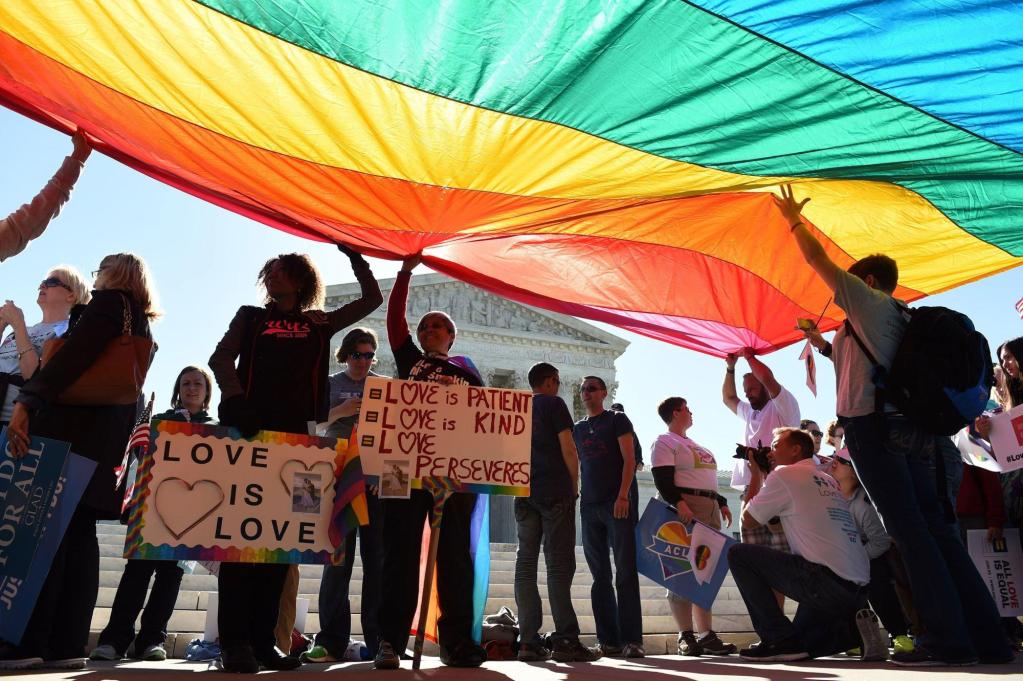Retired Justice Anthony Kennedy, who authored the Supreme Court’s landmark 2015 ruling in Obergefell v. Hodges that legalized same-sex marriage, expressed confidence that the decision will not be overturned. In a recent interview, Kennedy highlighted personal experiences that shaped his perspective on the ruling, particularly regarding the welfare of children adopted by same-sex couples.
During the interview, Kennedy revealed that he initially underestimated the number of children adopted by gay and lesbian parents, stating, “At first, I thought there were 75,000 children or so. It’s in the hundreds of thousands.” This realization was instrumental in his reasoning for the ruling, which is grounded in the Fourteenth Amendment that guarantees liberty and equal protection under the law. Kennedy emphasized that excluding same-sex couples from marriage benefits adversely impacts their children, leading to societal stigma and material hardships.
While the ruling was supported by a narrow majority of justices, dissenting opinions were voiced by Chief Justice John Roberts and Justices Clarence Thomas and Samuel Alito, with the late Justice Antonin Scalia also opposing it. Kennedy acknowledged ongoing controversy surrounding the decision, particularly as Justice Thomas has called for its reconsideration. Additionally, a pending case involving former county clerk Kim Davis could present an avenue for challenging the ruling.
Despite these challenges, Kennedy believes that the current Supreme Court majority shows no inclination to reverse the ruling. He stressed the importance of the legal principle known as stare decisis, which emphasizes the significance of adhering to precedent. “Stare decisis, in large part, is based on reliance, and there has been substantial reliance by adopting parents,” he noted. A reversal, he warned, would disrupt the lives of countless same-sex couples and their families.
Kennedy’s tenure on the Supreme Court spanned nearly three decades, during which he played a pivotal role in many significant legal decisions, including issues surrounding abortion rights and affirmative action. In his memoir, Life, Law & Liberty, he reflects on the personal conflicts he faced regarding his Catholic faith and the implications of his rulings on these contentious issues. He candidly recalled considering stepping down over the abortion debate in 1992 before ultimately casting a decisive vote to uphold Roe v. Wade.
On the topic of the recent reversal of Roe v. Wade, Kennedy refrained from speculating on how he might have voted, stating, “I stand by what I’ve written.” He was also critical of the tone of contemporary court opinions, expressing concern over the personal attacks among justices. “It’s very important to me that the opinions be written in a more moderate tone than they are,” he stated, highlighting that respect for the court’s decisions is vital for its integrity.
Kennedy addressed the May 2022 leak of a draft opinion in the case of Dobbs v. Jackson Women’s Health Organization, describing it as “most upsetting.” The leak led to widespread speculation about the identity of the leaker, creating tension within the court as it dealt with calls for greater transparency.
As he reflects on his legacy, Kennedy remains a prominent figure in discussions about legal rights and the direction of the Supreme Court. He continues to advocate for a more respectful and civil discourse in legal opinions and the broader political landscape, expressing concern over the current climate of confrontation in public discussions.








































































